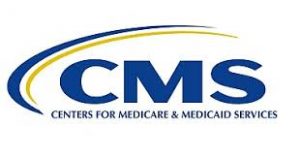 Earlier this month, Kaiser Health News published an update on what the Centers for Medicare & Medicaid Services (CMS) is doing to reimburse for more services that may not be strictly medical…but offer a health benefit. With Kaiser’s permission we are releasing their summary of these changes here.
Earlier this month, Kaiser Health News published an update on what the Centers for Medicare & Medicaid Services (CMS) is doing to reimburse for more services that may not be strictly medical…but offer a health benefit. With Kaiser’s permission we are releasing their summary of these changes here.
Air conditioners for people with asthma, healthy groceries, rides to medical appointments and home-delivered meals may be among the new benefits added to Medicare Advantage coverage when new federal rules take effect next year. Earlier this month CMS expanded how it defines the “primarily health-related” benefits that insurers are allowed to include in their Medicare Advantage policies. And insurers would include these extras on top of providing the benefits traditional Medicare offers. “Medicare Advantage beneficiaries will have more supplemental benefits making it easier for them to lead healthier, more independent lives,” said CMS Administrator Seema Verma.
Of the 61 million people enrolled in Medicare last year, 20 million have opted for Medicare Advantage, a privately run alternative to the traditional government program. Advantage plans limit members to a network of providers. Similar restrictions may apply to the new benefits. Many Medicare Advantage plans already offer some health benefits not covered by traditional Medicare, such as eyeglasses, hearing aids, dental care and gym memberships. But the new rules, which the industry sought, will expand that significantly to items and services that may not be directly considered medical treatment. CMS said the insurers will be permitted to provide care and devices that prevent or treat illness or injuries, compensate for physical impairments, address the psychological effects of illness or injuries, or reduce emergency medical care. Although insurers are still in the early stages of designing their 2019 policies, some companies have ideas about what they might include. In addition to transportation to doctors’ offices or better food options, some health insurance experts said additional benefits could include simple modifications in beneficiaries’ homes, such as installing grab bars in the bathroom, or aides to help with daily activities, including dressing, eating and other personal care needs.
“This will allow us to build off the existing benefits that we already have in place that are focused more on prevention of avoidable injuries or exacerbation of existing health conditions,” said Alicia Kelley, director of Medicare sales for Capital District Physicians’ Health Plan, a nonprofit serving 43,000 members in 24 upstate New York counties. Even though a physician’s order or prescription is not necessary, the new benefits must be “medically appropriate” and recommended by a licensed health care provider, according to the new rules. Many beneficiaries have been attracted to Medicare Advantage because of its extra benefits and the limit on out-of-pocket expenses. However, CMS also cautioned that new supplemental benefits should not be items provided as an inducement to enroll.
The new rules “set the stage to continue to innovate and provide choice,” said Cathryn Donaldson, of America’s Health Insurance Plans, a trade group. “CMS is catching up with the rest of the world in terms of its understanding of how we keep people healthy and well and living longer and independently, and those are all positive steps,” said Ceci Connolly, chief executive officer of the Alliance of Community Health Plans, which represents nonprofit health insurance plans. Some offer non-emergency medical transportation, low-cost hearing aids, a mobile dental clinic and a “grocery on wheels,” to make shopping more convenient, she said.
Charlotte Bishop is an Aging Life Care Advisor, Geriatric Care Manager and founder of Creative Care Management, certified professionals who are geriatric advocates, resources, counselors and friends to older adults and their families in metropolitan Chicago. She also is the co-author of How Do I Know You? A Caregiver’s Lifesaver for Dealing with Dementia.




